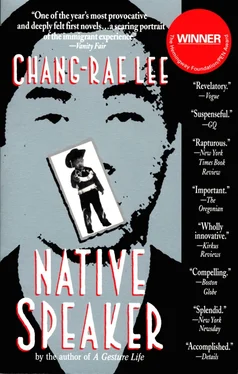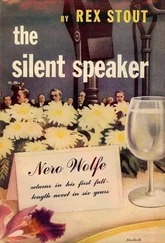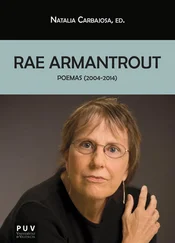“Okay. Anyway, they know my blue truck. They forget my face but they know my truck. I carry a box into a house. I check if the infants and children look healthy. The sick ones go on a list for the health service. I come back outside and people are always waiting there. They just want to talk. They know me as the English lady. All day I give lessons from the back of the truck. I sit there and they talk to me. I help them say what they want. How much is this air conditioner? Does this bus go to Sunland Park Racetrack? Yes, I cook and clean and I can sew . Now I teach a class at night. The same people and more. I try to turn them away, you know, because of fire codes. They look at me confused and don’t move. Half of them end up standing. They bring their babies because they heard you can learn in your sleep. What can I do? I let them all stay. Everybody in this town wants to learn English.”
I offered her what I could of me, inventing a story around the basic reasons why I was in El Paso. She didn’t push. Nils finally came around but Lelia didn’t say much and he said he had to step out for more crushed ice. We didn’t see him again. For the next hour or so we took turns getting each other beers, until she came back the last time with a plastic cup full of tequila.
“It’s still too hot in here,” she said. “Let’s go outside. There’s a little park a few blocks away.”
We sat on a bench among the sleepers. It was a clear night, the moon, a few high clouds. I’d given her my suit jacket. Some others were awake, talking and drinking like us. I heard them speaking Spanish, and I heard English, and then something else that Lelia said was called mixup . Its music was sonorous, rambling, some of the turns unexpected and lovely. Everywhere you heard versions.
“People like me are always thinking about still having an accent,” I said, trying to remember the operation of the salt, the liquor, the lime.
“I can tell,” she said.
I asked her how.
“You speak perfectly, of course. I mean if we were talking on the phone I wouldn’t think twice.”
“You mean it’s my face.”
“No, it’s not that,” she answered. She reached over as if to touch my cheek but rested her arm instead on the bench back, grazing my neck. “Your face is part of the equation, but not in the way you’re thinking. You look like someone listening to himself. You pay attention to what you’re doing. If I had to guess, you’re not a native speaker. Say something.”
“What should I say?”
“Say my name.”
“Lelia,” I said. “Lelia.”
“See? You said Leel-ya so deliberately. You tried not to but you were taking in the sound of the syllables. You’re very careful.”
“So are you.”
She took a sip from the cup. “It’s my job, Mr. Henry Park. Unfortunately, I’m the standard-bearer.”
A breeze rolled in. She wrapped herself tighter in my jacket and slid beside me. We sat like that for half an hour, in silence, listening to the voices from the edge of the dark. Finally I leaned and kissed her. She quickly kissed me back, though it was more like an answer than a statement. For a moment we were dumb to what was happening. We weren’t drunk. I asked her if she had ever kissed an Asian before. She laughed and said she wasn’t thinking about it that way, but no.
“You taste strange, but only because I don’t know you. Hold on.”
She kissed me again, lingering this time.
“Definitely Korean,” she said, nodding. Then she stopped. “Hey, are you enjoying this?”
I smiled and said couldn’t she tell.
She searched my eyes. “No,” she said, now aroused, “I really can’t.”
I did something then that I didn’t know I could do. It was strangely automatic. Instantly I was thinking of the lover she might want, the man whom she’d searched out but hadn’t yet found in her life. I thought of the ways Nils was perhaps falling short. I put myself in her place and imagined her father and mother. Boyfriends, recent loves. I made those phantom calculations, did all that blind math so that I might cast for her the perfect picture of a face.
I embraced her firmly and kissed her.
“You can kiss me back, you know,” I said. “I’m leaving tomorrow, so don’t worry. I won’t hold you to it.”
I stayed another whole week. Later, and throughout our marriage, Lelia liked to speak of those first days. She would trace us back to that beginning time like some evolutionist. Maybe she thought certain clues would arise from the primordial pool to make sense of our eventual difficulties. Were there traits or habits of personality that we had too readily dismissed, too easily obliged?
But then marriage must be the willingness to walk the blind alleys. Maybe I know that now. You don’t tempt fate, you ignore it completely. During the two months she was gone in the Italian islands I walked the streets of the city with my back blind. I was matching the steps of my soloist wife at the other end of the world. At times I found myself moving to her own ambling, driven gait, round on the heels, nearly race-walking, breasts forward in guidance, my life’s ballasts. I mimicked her high, but never shrill voice. I felt the blush of an anger rise on my neck. I could even see myself, maddeningly centered as usual, hunched at the far end of our empty and too large apartment, sipping easy liquor.
Naturally, I came to see the list as indicative of her failures as well as mine. What we shared. It was the list of our sad children.
My eventual folly, played out in a bar in East New York, was that I came to know the list intimately as my own, as if I alone had authored it. I treasured the cheapest sort of vanity. I flashed it with a grotesque pride. Feigning shame, I showed it to some hard grunge types, to their even harder women, to red-faced professionals. I let them call me The Yerrow Pelir . They named a drink after this, some emetic concoction of Galliano and white wine, with which we toasted each other all night. Drunk, overgenerous, I let them tack it to the wall with a dart. This the herald of our marriage.
* * *
The day after she left I asked Jack Kalantzakos what he knew about the places my wife would be, whether they were beautiful, striking, possibly dangerous.
“You mean will she take a lover there?” he said, his thick moustache spiced with strong oils. He was our office expert in affairs Mediterranean.
I must have nodded.
“I doubt she will,” he answered himself, “unless she favors Asiatic, hollow-cheeked boys. Lean young swimmers. But then I look at you….”
Of course he knew this was what I wanted to hear. I pressed him on it and learned only that the emperor Diocletian had built a resplendent palace on the shores of the Adriatic, for his retirement, of all things, as if he might escape the snarls of his Rome.
Jack was himself a cool-blooded demigod in a previous life. He had maybe twenty years in the firm. Any nobility resided in his powerful brow; his other features necessarily surrendered to it. He had massive, soft hands, which he pressed flat against his temples when he spoke. It often looked as if he had witnessed something disastrous.
“My advice,” he said, “before you ask me for it, is that you go to her. Take the next boat.” Jack was much older than you thought.
“Make short passage,” he urged me. “Find her quickly.”
“She wouldn’t give me her address. She said she’d send it.”
“Henry Park isn’t one to follow his woman anyway,” said Ichibata, who sat near him. “Henry Park sends a tail.”
Pete Ichibata was gloomy, ironical, pale. I liked him immensely, his sullenness, his corpselike color, except when he was lodged in a good mood, when he became overbearing and megalomaniacal. He shelled peanuts obsessively. You crackled when you neared his desk — his early-warning system. My mother, in her hurt, invaded, Korean way, would have counseled me to distrust him, this clever Japanese. Then, too, she would have advised against my marriage to Lelia, the lengthy Anglican goddess, who’d measure me ceaselessly while I slept, continually appraise our vast differences, count up the ways.
Читать дальше












